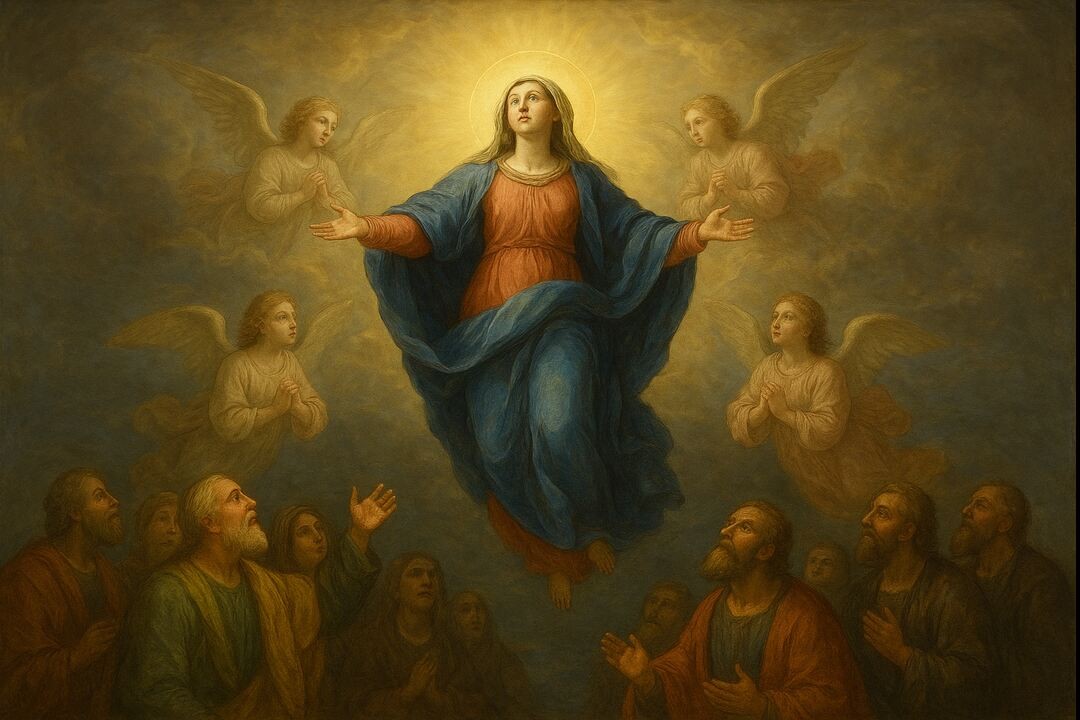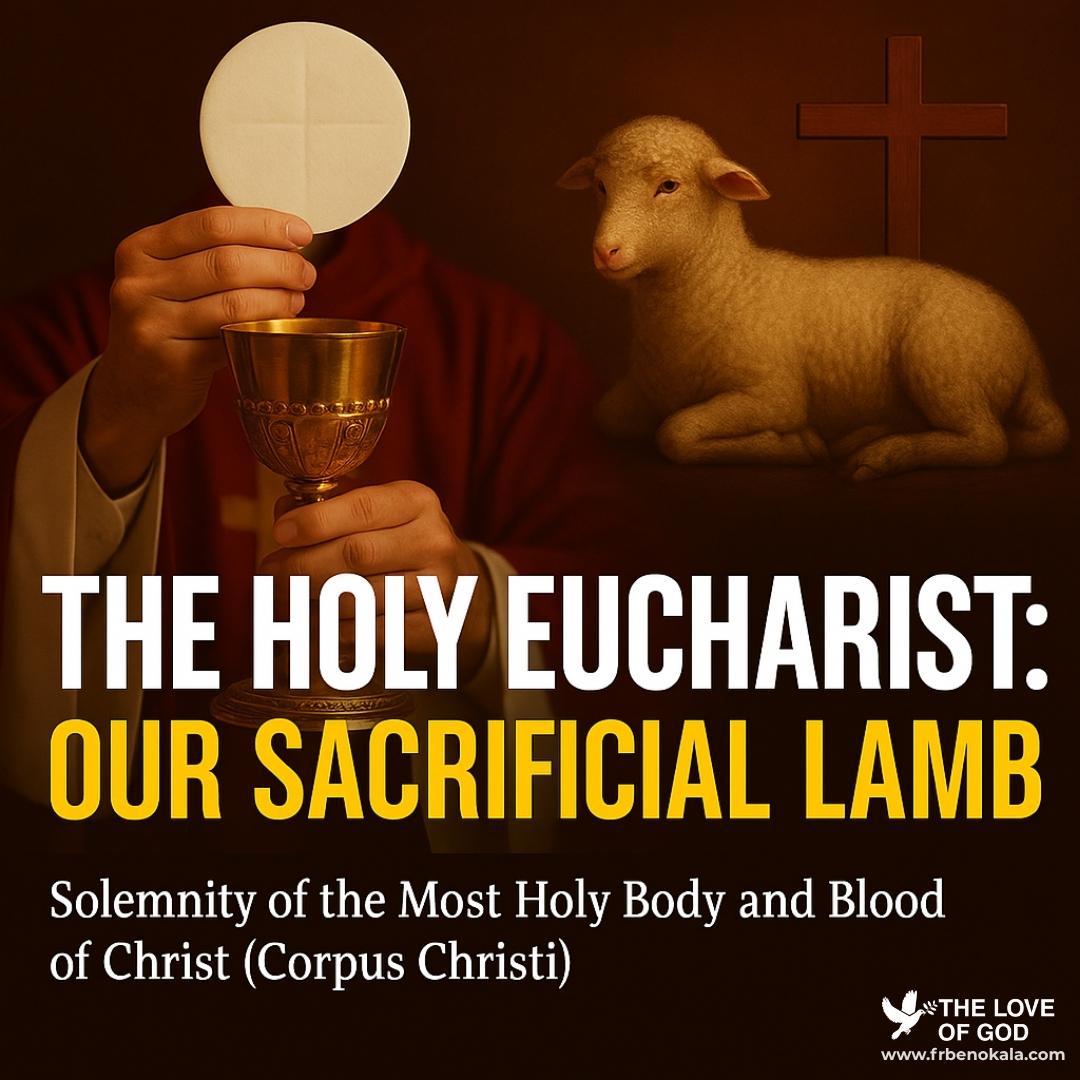SOLEMNITY OF THE MOST HOLY TRINITY, YEAR A
First Reading: Exodus 34:4-6, 8–9; Second Reading: 2 Corinthians 13:11–13; Gospel: John 3:16–18
The Holy Mother Church celebrates today the Solemnity of the Most Holy Trinity, which is the belief that there is one God in three persons: the Father, the Son, and the Holy Spirit. This is a special feast day in the Church that is being celebrated on the Sunday after Pentecost.
Certainly, this feast is an opportunity for us to deepen our understanding of the central and quintessential doctrine of our faith and to give thanks for the love and unity of the Most Holy Trinity. In this homily, we shall briefly explain what the Trinity means, how to emulate her, and how to live in communion with one another as members of the Body of Christ.
The Mystery of the Trinity
Tertullian was the first to use the word “Trinitas” in Christian theology. The doctrine of the Trinity is central to the uniqueness of Christianity. It holds that “There is One Eternal God who exists as three distinct Persons: Father (Creator), Son (Redeemer), and Holy Spirit (Sanctifier), and each Person is fully God.” The divine Persons do not share the one divinity among themselves, but each of them is God whole and entire (CCC 253).
Also, the divine Persons are really distinct from one another. The Father is not the Son. The Son is not the Father. The Father is not the Holy Spirit. The Holy Spirit is not the Father. The Son is not the Holy Spirit. The Holy Spirit is not the Son. Of course, the “Father”, “Son” and “Holy Spirit” are not simply names designating modalities of divine being, for they are really distinct from one another (CCC 254). This is a mystery that is beyond human comprehension.
However, Jesus Christ gave us a glimpse into this mystery when He said, “To see me is to have seen the Father. I am in the Father, and the Father is in me” (John 14:9–10). Also, “I and my Father are one” (John 10:30).
Unity and Communion in the Trinity
Moreover, the three divine persons live in perfect unity and communion with each other. St. Irenaeus opined that Jesus Christ and the Holy Spirit (word and wisdom, respectively) are the two hands of God working in the creation process. That it is love that holds the three divine Persons together as one.
Meanwhile, due to heresies that some scholars (Arius and others) were promoting during the early Christian era, namely that Jesus Christ is not God and not of the same substance as the Father and that the Holy Spirit is of lower rank than the Father and the Son, the Councils of Nicaea (325 AD) and Constantinople (381 AD) were convoked in order to resolve and affirm the natures of Jesus Christ and the Holy Spirit, respectively. Hence, these brought forth the definition and formulation of the doctrine of the Nicene Creed we profess in the Church today.
God’s Attributes: Love and Mercy
In the first reading of today, God appeared to Moses through the cloud and proclaimed His attributes to him, namely: ‘merciful’, ‘gracious’, ‘slow to anger’, ‘abounding in steadfast love’, and a ‘faithful God’.
Consequently, because of these attributes of God, He never allowed humanity to perish after the fall of Adam; rather, He sent His only begotten Son to reconcile humanity back to His friendship. Just as the gospel reading reveals, “For God so loved the world, that He gave His only begotten Son, that whoever believes in Him should not perish but have eternal life” (John 3:16). So, anyone who accepts or believes in Jesus Christ and thus is baptized in the name of the Father, and of the Son, and of the Holy Spirit would be saved (Matthew 28:19).
Living in the Image of the Trinity
Besides, believing in Jesus Christ presupposes that we always practice those attributes of God by living in peace, love, and communion with one another, just as St. Paul avers in the second reading (2 Corinthians 13:11–13). Also, He enjoins us to live in the same manner as the Holy Trinity (Father, Son, and Holy Spirit), who bond by love, live as a perfect community, or are in perfect communion with one another. As the scripture says, “we pray to the Father through the Son and in the Holy Spirit (Ephesians 2:18). Hence, our communion with God should be enhanced by consciously knowing that we are relating to the Most Holy Trinity.
Conclusion
Finally, God is a community of persons (Father, Son, and Holy Spirit—the Most Holy Trinity) who are bound by love. Though we have different faces, characters, and nations, we are all created in the image and likeness of God. Our calling is for a purpose: to be in communion with God, bearing good fruits, which would enhance good community living that is bonded by love, living in peace and unity with one another as members of the Body of Christ.
Prayer:
May the grace of our Lord Jesus Christ, the love of God, and the communion of the Holy Spirit be with you and your entire family forever, Amen!
Peace of Christ be with you…
Rev. Fr. Benjamin Okala, C.S.Sp.



